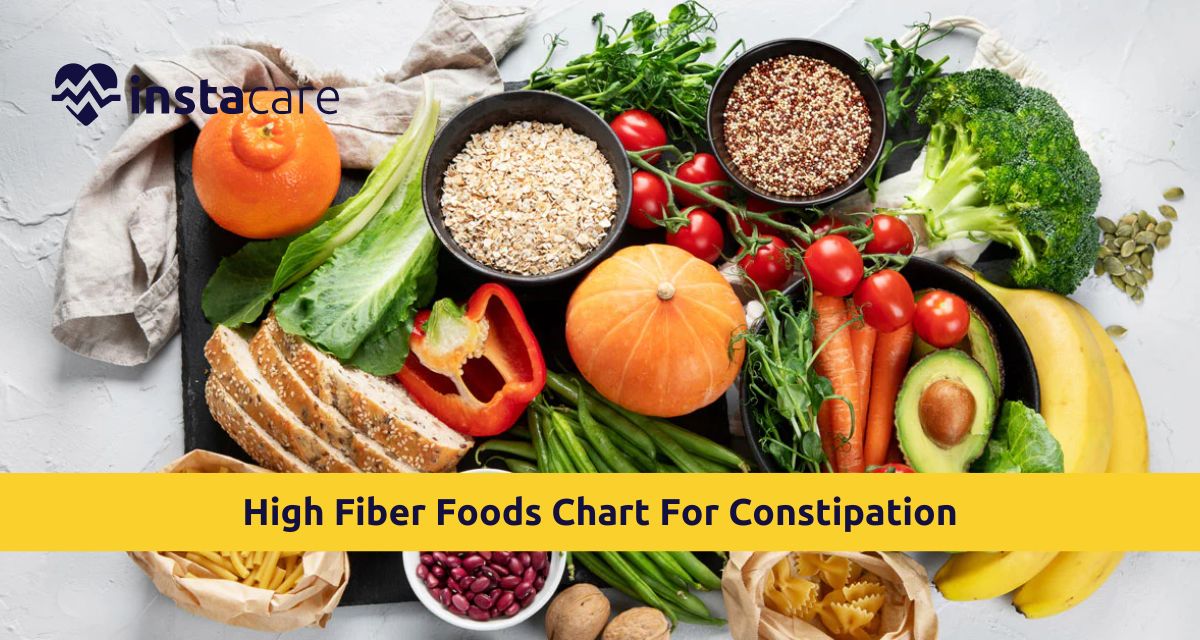Constipation is, indeed, one of the most common failures of digestive functions that millions of people worldwide go through. It is important and irritating because it upsets the natural running of your daily life and all of your well-being. One of the good ways to relieve this illness is a diet full of foods high in fiber. Why is fiber important? To list the fiber-rich food list in detail, we will conclude by giving some practical advice on how to incorporate these products into your daily diet.
High-Fiber Foods Useful For Reliving Constipation
The list below presents a long list of
natural foods that are high in fiber and suitable and recommended for application in case there is a problem of constipation. The list indicated
below gives a division into fruits, vegetables, grains, legumes, and
nuts/seeds for easier reference.
1- Apples
Apples are very rich in their fiber
content; a medium fruit gives about 4 grams if the skin is included. Really, an
apple also contains pectin, which helps the digestive process to lighten, which
it should.
2- Raspberries
This is yet another fibrous fruit, content
at about 8 grams per cup. Of course, it also contains some vitamin C for
antioxidant purposes.
3- Bananas
An average-sized banana has approximately 3
grams of fiber. Packed with fiber, for this reason, it contains potassium,
which is a nutrient required in order to have well-functioning body muscles.
4- Oranges
A medium-sized orange contains, give or
take, 3 grams of fiber. To include the fiber content of oranges, they are
stored in vitamin C and folate.
5- Broccoli
A cup's worth, cooked, gives you about 5
grams of fiber. Not to mention, they come fortified with Vitamins K and C, in
addition to Folate.
6- Carrots
Hard to believe, but just one serving raw
in one cup of carrots contains roughly 4 grams of fiber. Besides helping to
provide a nice crunch, they make a pretty nice however nutritional addition to
any meal.
7- Sweet Potatoes
One medium one has about 4 grams if taken
with its skin. Additionally, they are a great source of Vitamin A.
8- Brussels Sprouts
They are small-growing veggies packed with
around 4 grams in one average cooked cup. They are also matched with extra
supply in the form of Vitamins K and C.
9- Spinach
This superfood is dense with some 6 grams
of fiber in every cooked cup, with added benefits of iron and calcium.
10- Oats
Generally, one cooked cup of oats is
equivalent to about 4 grams of fiber. It's a good source of protein as well and
contributes to a reduction in cholesterol.
11- Quinoa
It is a complete source of protein,
providing about 5 grams of fiber per cooked cup, so it works perfectly for
vegetarians.
View More: Diabetes Diet Chart Plan - The Best Foods For Diabetes
12- Brown Rice
In a cooked cup, it has about 3.5 grams of
fiber, making it quite an objective strict alternative to white rice, laden
with lots of nutrition.
13- Barley
There are about 6 grams of fiber in a
similar cup of cooked barley, completely crammed with nutrition and loaded with
a lot of vitamins and minerals in an entirely whole way.
14- Whole Wheat Bread
Simply consuming two slices of whole growth
wheat bread already has 4 grams of fiber. Eat the whole grain varieties as
often and as much as you can so that you can have more of the substance.
15- Lentils
In one cup, cooked lentils provide about 15
grams of dietary fiber. They also contain good protein and iron.
16- Chickpeas
About 12 grams of fiber can be found in one
cup of cooked chickpeas. It has its varieties and can easily fit into the
making of any dish.
17- Black Beans
One cup of black beans will give a rough 15
grams of fiber when cooked. This has been linked to high levels of proteins and
anti-oxidants also.
18- Kidney Beans
One cup cooked contains roughly about 13 g
of fiber; the other important minerals contained in this bean are folate and
iron.
19- Peas
One cup cooked contains almost 9 g of
fibres and plenty of proteins along with much other number of vitamins.
20- Chia Seeds
Two tablespoons of chia seeds are said to
have about 10 g of fiber. They are good sources of the omega-3 fats and
protein.
21- Flaxseed
Ground flaxseed is a great source of
soluble food fiber, and one tablespoon contains 3 g. It is also a major source
of omega-3 fatty acids and proteins.
22- Nuts
A quarter cup of almonds equals about 4 g
of fiber, besides good fats and is a good source of vitamin E. Each ounce of
walnuts equals about 2 g of fiber. This is a very high nut in Omega-3 fatty
acid content. Each quarter cup of pistachios equals about 3 g of fiber; they
are similarly very high in protein and antioxidants.
Ways Of Increasing More Fiber
If one is not used to a high-fiber diet,
then the fiber in the diet should be slowly introduced to reduce
gastrointestinal distress. Start increasing 5 g of fiber per day and increase
gradually provided the body was responding to it nicely.
1- Stay Hydrated
You ought to consume high fiber together
with plenty of water because fiber requires the water to better collaborate
with that which is in the body. Fiber sucks in the water, and that is what is
able to make stool soft.
2- Mix And Match
This is you balance up intake between the
types of two fibers. Mix everything up, do not leave anything in your diet. Mix fruits and vegetables, mix the different kinds.
3- Read Labels
By reading the label, you can opt for whole
grains and more fiber. On packaged foods, all the nutrition facts found within
are listed on the package.
4- Use Care With Fiber Supplements
The best way to get your daily fill of
fiber is through a healthy diet filled with whole foods. Supplements may be
helpful after consulting first with a health provider, though are not meant to
replace naturally occurring food sources.
Conclusion
It goes without saying that including
high-fiber foods in your diet can help reduce constipation, which can have
positive health effects. You should know that among the various high-fiber
foods available, dietary fiber is a good choice. Examples of these foods
include fruits, vegetables, cereals, legumes, nuts, and seeds. They bond you
with healthy living by making sure you obtain enough fiber to sustain regular
intake of bowel movements. It is advised to consume fiber gradually, drink
plenty of water, and eat a wide range of different meals.
Please book an appointment with the best Nutritionist in Lahore, Karachi, Islamabad, and all major cities of Pakistan through Instacare, or call our helpline at 03171777509 to find a verified doctor for your disease.











